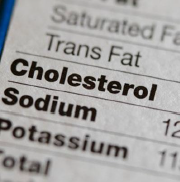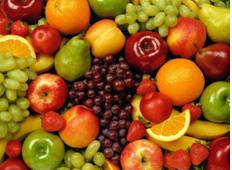Taking a Closer Look at Dietary Cholesterol
Many would think that cholesterol is a harmful substance as it will increase the risk of cardiovascular diseases. In fact, cholesterol plays an important role in the human body, including assisting in the production of vitamin D, bile, and some hormones. Furthermore, cholesterol serves as a main component of our cell membranes. Therefore, cholesterol is of paramount importance to our body and it will only be harmful to our health when it exceeds a certain level.

Cholesterol Regulation in the Human Body
Do you know that most of the cholesterol in our body is produced by the liver? There is only about 30% which comes from our diet: animal-based products such as meat, fish, seafood, and dairy products, etc.
Moreover, there is a mechanism which helps to regulate the cholesterol level in our blood so as to keep it at a desirable level. For instance, cholesterol production by the liver would drop when our dietary consumption increases and its production would rise to fulfill our body needs if we consume limited amount of this essential substance.
Can We Feast Finally?
Nevertheless, this mechanism fails to work in some individuals and their blood cholesterol soars after consuming food containing cholesterol. Consequently, excess cholesterol may be deposited on the inner walls of blood vessels, leading to partial or complete blockage of the lumen. Hence, our daily diet should still be based on the principles of “balanced”, “diversified”, “more vegetables and less meat”, as well as “less oil, salt and sugar, and more dietary fibre”. We should not indulge in over-eating and drinking.

|
Bad cholesterol increases the risk of cardiovascular diseases |
In addition, excessive intake of saturated fat and trans fat will still increase the level of bad cholesterol, hence accelerating the risk of cardiovascular diseases. 1
Sources of “Bad” Fat
| Saturated Fat | Trans Fat |
|---|---|
|
Generally solid state at room temperature. Foods containing high saturated fat and cholesterol includes butter, fowl with skin, full-fat dairy products, meat with high fat content such as pork ribs, pork jowls, pork bellies and beef ribs. The World Health Organisation recommends a daily saturated fat intake of no more than 10% of total energy. 1 |
When liquid form oil transforms into a more stable form of semi-solid fat during the process of partial hydrogenation (to prolong shelf-life and improve food texture), trans fat is created as a byproduct. Trans fat can be generally found in foods containing partially hydrogenated vegetable oil, e.g. margarine, shortening, biscuits, crackers, cookies, French fries, cakes, salad dressings, pies and milk powder with vegetable fat. The World Health Organisation recommends a daily trans fat intake of no more than 1% of total energy. 1 |
Besides, dietary fibre helps to reduce the total and bad cholesterol levels.1 In light of this, we recommend eating more high-fibre food, such as vegetables (e.g. cucumbers, carrots and yams), fruits (e.g. bananas, apples and pears), oat meals and beans (e.g. soy beans, red kidney beans and cowpeas) in a balanced diet.

|
Eat more fruits and vegetables! |
To know more about…
- healthy eating, please visit ‘Health Zone’ website at http://www.cheu.gov.hk
- ‘Health@work.hk Project’, please visit http://www.healthatwork.gov.hk
1 World Health Organisation
 Top
Top



